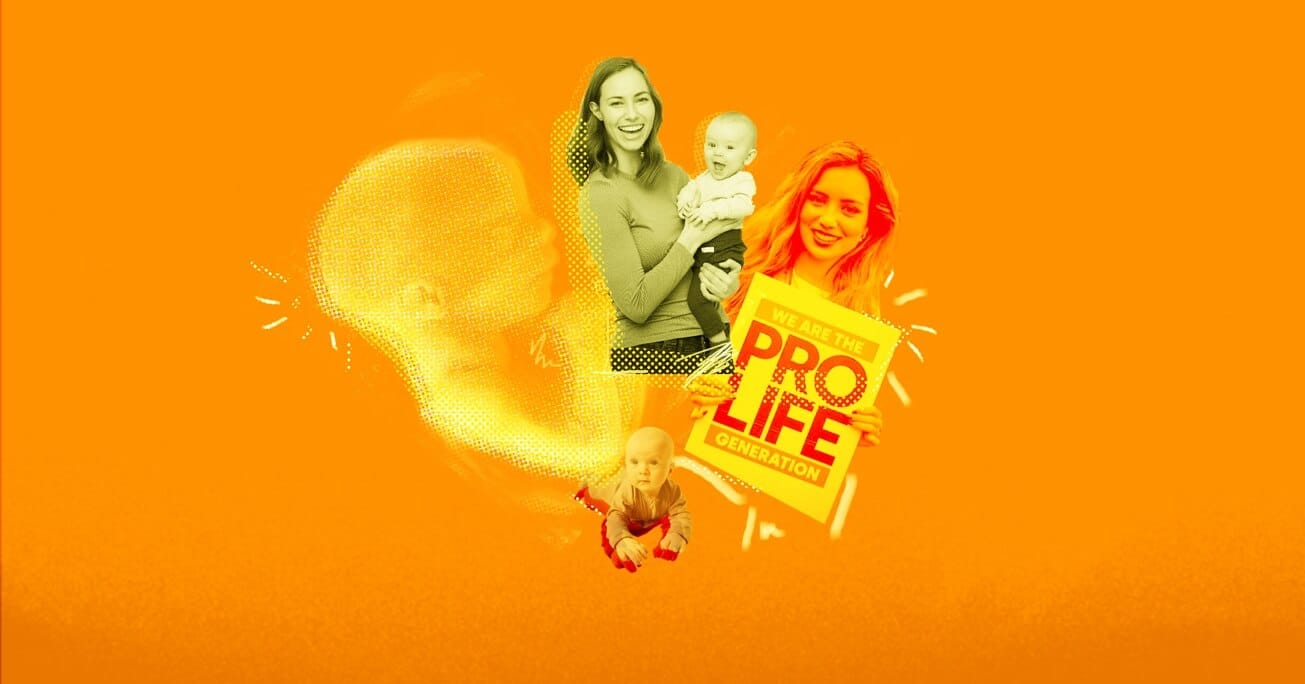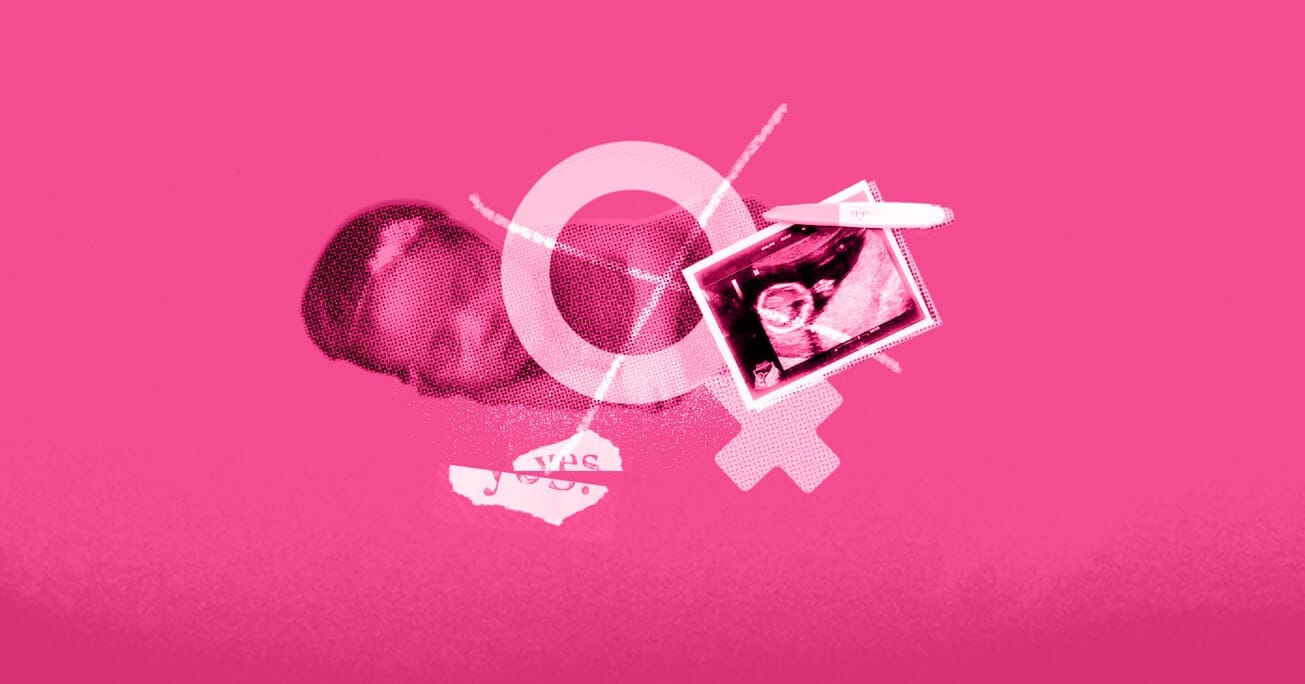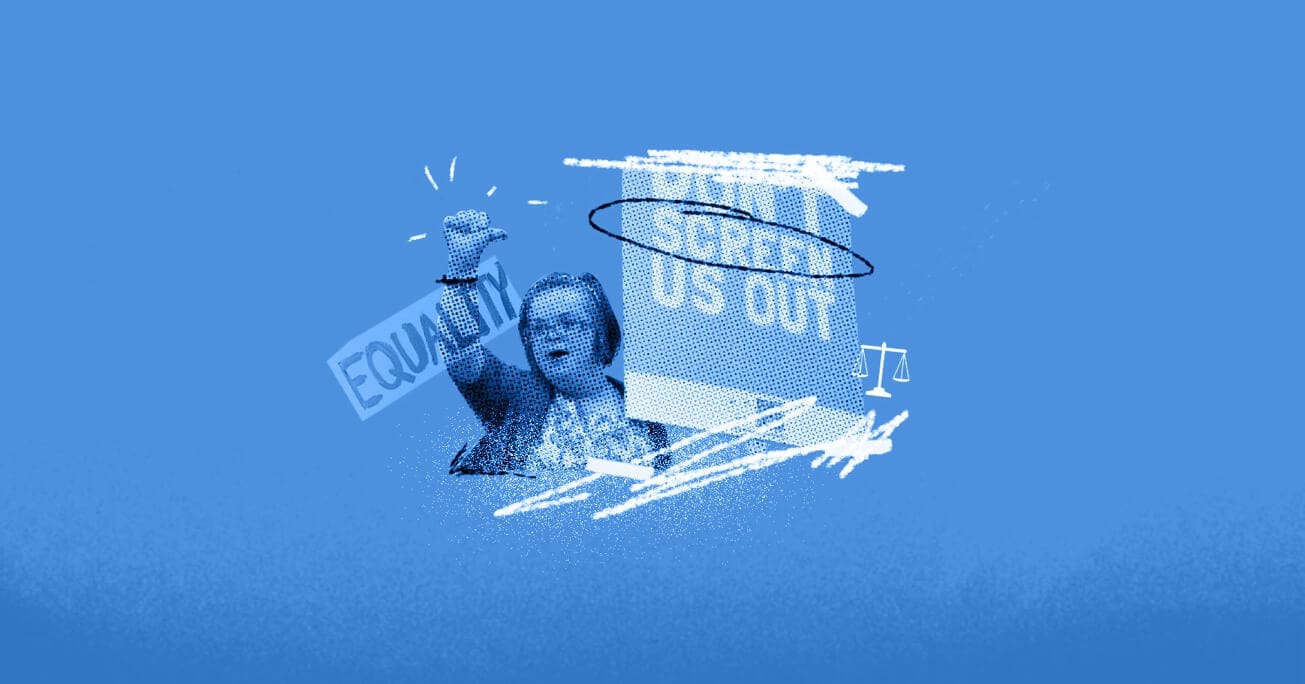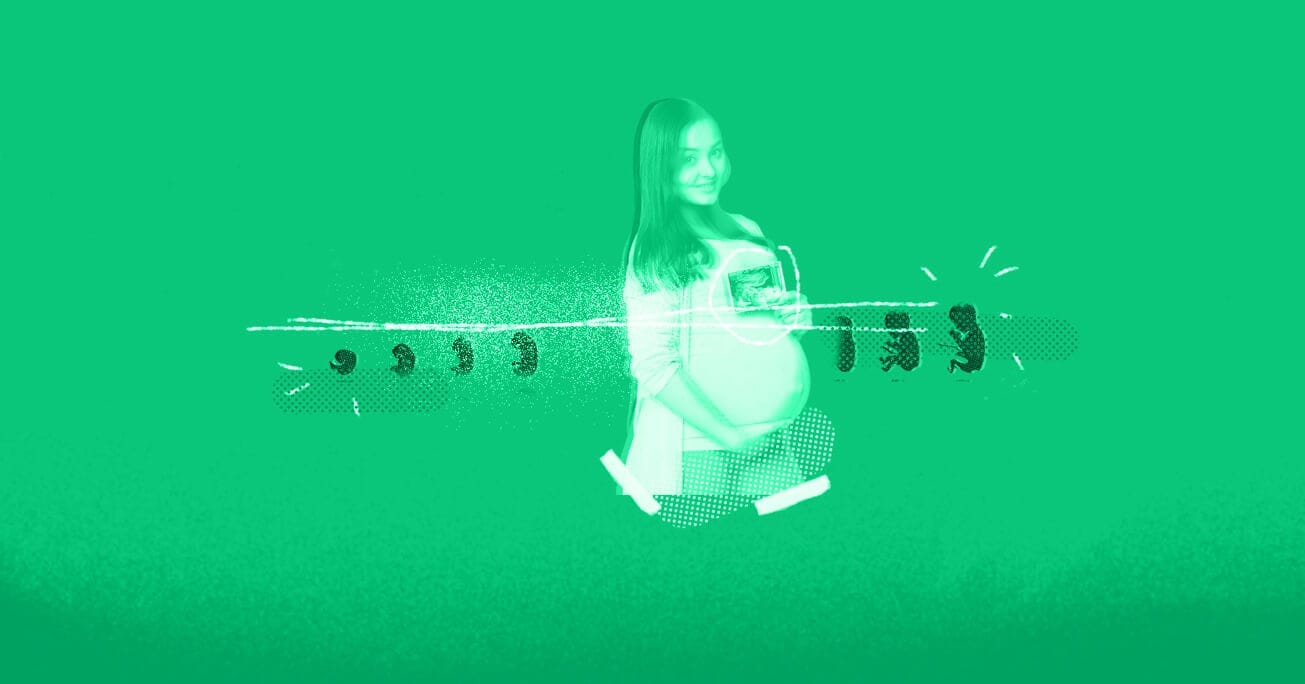In brief
- Being pro-life means believing that all humans, born and unborn, have a right to life.
- Because of this, pro-lifers are morally and legally opposed to abortion, embryo-destructive research and assisted suicide and euthanasia.
- People who are pro-life often disagree about what precisely the law on these issues should be and how it should be implemented.
- The term pro-choice refers primarily to support for legal abortion. It exists on a spectrum. Some who identify as pro-choice think abortion should be legal up to a certain number of weeks gestation or under certain circumstances, and some advocate an extreme view where abortion should be legal up to birth.
- Pro-lifers believe that mothers and their unborn babies have a right to life.
The meaning of ‘pro-life’
The following article is more of an explanation of the pro-life view and not primarily a justification. Individual articles on specific topics featured on the Knowledge Base provide a more detailed overview of specific arguments offered for a particular position.
To be ‘pro-life’ means that you believe that all human life, from conception to natural death, is morally equal or is equal in dignity. Pro-lifers believe that all human beings have a ‘right to life’, which means they have a right not to be killed.
There is no uncontentious definition of ‘pro-life’ (or ‘pro-choice’). Many people who identify themselves as pro-life have disagreements about what that term means.
For many people, the pro-life movement is most strongly associated with being anti-abortion. This is certainly part of the pro-life position, but it is not exhaustive of it as the above definition indicates.
Importantly, from the above definition, a number of implications can be drawn out.
The ‘pro-life’ view does not discriminate – the right to life applies to all human beings without restriction. The following considerations are irrelevant when it comes to a human’s right to life:
Size
It does not matter how big or small a human is. Whether they are a zygote or fully grown, they have a right to life.
Physical or cognitive development
It does not matter how physically or mentally developed a human is. Whether they have a severe or mild mental disability; whether they are cognitively immature (as is a late-term unborn baby or a newborn infant); whether their physical development means they do not yet have a brain (as in an embryo in early-stage pregnancy or in vitro); whether they have advanced dementia and no short or long-term memory: all of these human beings have a right to life.
Location
It does not matter where a human being exists. Whether that be inside or outside his or her mother’s womb, they have a right to life.
Dependency
It does not matter how dependent one human is on another. Whether they have a physical and/or mental disability that means that they are unable to wash or feed themselves; whether they are a newborn who relies on his or her mother’s breast milk for survival; whether they depend on their mother for nutrition (via their placenta) and the appropriate growing environment (their mother’s womb): they all have a right to life.
Unborn humans are humans too and have a right to life
Importantly, pro-lifers recognise that since the right to life belongs to all human beings without exception, it also applies to unborn human beings, even from the earliest moments of their existence. The science of embryology shows that life starts at conception.
- A survey of 5,577 biologists in 2018 showed that 96% of respondents agreed that a human life begins at fertilisation. Steve Jacobs, who conducted the survey said: “The majority of the sample identified as liberal (89%), pro-choice (85%) and non-religious (63%)”.
- “Human development begins at fertilization, when a sperm fuses with an oocyte to form a single cell, the zygote. This highly specialized, totipotent cell (capable of giving rise to any cell type) marks the beginning of each of us as a unique individual”. – Keith L. Moore, The Developing Human: Clinically Oriented Embryology, (10th ed. Philadelphia, PA: Saunders, 2016. p. 11) [emphasis added]
- “Development begins with fertilization, the process by which the male gamete, the sperm, and the female gamete, the oocyte, unite to give rise to a zygote”. – Sadler, T. W. Langman’s Medical Embryology (10th ed. Philadelphia, PA: Lippincott Williams & Wilkins, 2006. p. 11) [emphasis added]
- “The main results of fertilization are as follows: Restoration of the diploid number of chromosomes, half from the father half from the mother. Hence, the zygote contains a new combination of chromosomes different from both parents. Determination of the sex of the new individual. An X-carrying sperm produces a female (XX) embryo and a Y-carrying sperm produces a male (XY) embryo. Therefore, the chromosomal sex of the embryo is determined at fertilization”. – Sadler, T. W. Langman’s Medical Embryology (13th ed. Philadelphia, PA: Lippincott Williams & Wilkins, 2015. p. 42) [emphasis added]
From these core definitions and the fact that all humans, unborn or otherwise are still fully and completely human, a number of pro-life views follow by simple logic.
Abortion
- Intentionally ending the life of an innocent human being is wrong (pro-life view)
- Abortion intentionally ends the life of an innocent human being (empirical fact)
- Therefore abortion at any stage of pregnancy for any reason is morally wrong.
Assisted suicide and euthanasia
- Intentionally ending the life of an innocent human being is wrong (pro-life view)
- Assisted suicide and euthanasia intentionally end the life of an innocent human being (empirical fact)
- Therefore assisted suicide and euthanasia are morally wrong.
Embryo destruction
- Intentionally ending the life of an innocent human being is wrong (pro-life view)
- Embryo destruction intentionally ends the life of an innocent human being (empirical fact)
- Therefore the intentional destruction of, or disregard for, human embryos is wrong.
- This follows from the pro-life belief in the dignity of human life from conception to natural death.
- The creation of human embryos for research purposes, as well as their subsequent destruction, is a violation of their right to life.
Summary
Killing any innocent human being for any reason is morally wrong
For pro-lifers, their belief in the right to life forms the basis for all moral and legal prohibitions on killing.
The pro-life view makes no judgement about the character of those who do any of the above things. Saying that ‘abortion is morally wrong’ is not saying anything about the culpability of those who perform, engage with or have abortions. For example, pro-lifers recognise the often difficult circumstances of women who choose abortion and make no judgements about her character.
In the case of abortion, the pro-life view recognises the right to life of both mother and child (cases where there is a supposed conflict will be addressed below).
Pro-lifers usually hold that the above practices should be illegal too. The intentional destruction of, or disregard for, human embryos, should not be funded at all, and the collection of human embryos for this purpose should be illegal.
There is considerable disagreement about how these legal ends should be achieved as well as any specifics of law.
There are politicians who have called themselves pro-life but have either said or acted in ways contrary to this. Such persons either have a different, much looser, definition in mind or perhaps do not understand what it means to be pro-life.
The meaning of ‘pro-choice’
As with the definition of pro-life, there is no uncontentious definition of ‘pro-choice’. The term pro-choice could refer to anyone who is in favour of choice about almost anything. Most people are pro-choice about what flavour of ice cream people should be allowed to buy and what mode of transport to take to work.
However, most people are not pro-choice about whether the law should permit someone to steal from their neighbour, or choose whether or not to drive through a red traffic light.
The pro-choice movement is far more restricted in its scope than the pro-life movement in the sense that the pro-choice movement is concerned only with abortion and not assisted suicide and euthanasia or embryo destruction.
Being pro-choice typically exists on a spectrum from radical supporters of abortion who advocate for abortion throughout all nine months of pregnancy for any reason, to people who support abortion up to a certain point such as 24 weeks, 16 weeks, 12 weeks or earlier.
Only 1% of women in Great Britain support making abortion legal up to birth, whereas 70% of women believe the abortion limit should be reduced to 20 weeks or lower.
Pro-choice definition: the belief that, in some or all circumstances, abortion is morally and/or legally permissible.
Misconceptions about the pro-life position
Many arguments against the pro-life position are based on misconceptions.
Misconception #1: Pro-lifers only care about babies before they are born
Reality: Pro-lifers care about babies before and after birth
- As a matter of principle, it is untrue that pro-lifers only care about babies before they are born. As the definition of pro-life makes clear, all human beings, babies born and unborn, have a right to life and their lives ought not to be intentionally ended.
- As a political matter, it is also not true that pro-lifers only care about babies before they are born. Since there is no organisation campaigning to remove the right to life of babies outside of the womb, pro-lifers tend not to discuss this issue. If there were a political movement to remove the right to life of children after birth or supported infanticide, the pro-life movement would oppose it.
- As a matter of fact, there are numerous pro-life organisations that provide practical support and assistance to mothers and families particularly those with newborn babies, the biggest of these in the UK being Life Charity, which raises millions of pounds each year from pro-life people to provide emotional and practical support to mothers and their babies, which includes providing housing and community support around the country. Over 12,000 mothers have been provided with housing by Life Charity.
Misconception #2: Pro-lifers do not care about the lives of women
Reality: Pro-lifers care about women (both born and unborn) and their babies
- As a matter of principle, pro-lifers care about the lives of women. As the definition of pro-life makes clear, all human beings, unborn babies and their mothers, have a right to life and their lives ought not to be intentionally ended. They are each worthy of respect and protection under the law in virtue of the dignity of being human.
- As a political matter, one of the pro-life movement’s slogans is “Love Them Both“. The pro-life movement does not believe that society must choose between mother and baby, but that both can be loved, helped and protected.
- As a matter of fact, there are numerous pro-life organisations that provide practical support and assistance to mothers and families particularly those with newborn babies. See the above section for more details.
Arguments against the pro-life position
Argument #1: Abortion is a personal choice. If you don’t like abortion don’t have one.
Reality: Abortion is a choice that profoundly affects more than one person. It ends the life of one person and can seriously affect the life of at least one other. “If you don’t like chocolate ice cream, don’t have it” is a reasonable thing to say. Given that abortion ends the life of an innocent human being with a right to life, “If you don’t like abortion don’t have one”, is not.
- As a matter of principle, the pro-life movement believes in the right to life of all humans, including the mother and her child. There are all kinds of choices that society rightly opposes. For example, society does not accept the choice to steal from someone else, nor to discriminate against someone based on the colour of their skin. While the choice to steal from another or to discriminate based on skin colour are personal choices, we do not accept that these things should be morally or legally permissible.
- As a political matter, laws, in general, are a form of restriction on actions. Red traffic lights, for example, impose a restriction upon drivers, but it is a restriction we all recognise as perfectly reasonable. Given the pro-life commitment to the right to life, it is equally reasonable that unborn babies should be protected under the law.
Argument #2: Being biologically human is not morally important. What is morally important is being a ‘person’ and humans do not become persons until some time after conception/fertilisation.
Reality: Being biologically human is morally significant. To say otherwise is to reject any notion of human equality and dignity of human life.
- As a matter of principle, if being human is not morally (or legally) important, then there is no rational basis for other moral principles, such as the equality of human beings. There is no other criterion under which we are all entirely equal. Human beings vary in their size, their intelligence, their age and every other conceivable factor, except their being human. All humans are equally human.
- To base our moral value on our being ‘persons’, and then defining ‘person’ by some psychological trait or other, is to reject any basis for human equality whatsoever.
- As a political matter, excluding the abortion law in the UK, the law does not, and should not, discriminate between citizens under the law. The law does not have a hierarchy of human beings, some of whom are considered persons and therefore entitled to full protection under the law and others who are not considered persons, and therefore entitled to fewer protections or perhaps none at all.
- Abortion already has devastating consequences for the most vulnerable in our society but a denial of the pro-life view, if extended beyond the womb (and, logically speaking, there is no reason why it should not be [see below]) will have far-reaching and devastating consequences for the most vulnerable in our society.
- As a matter of fact, there are academics and activists who argue in favour of the moral and legal permissibility of infanticide. They reason, consistently, that if late-term abortion is morally permissible because the unborn baby is not self-aware and therefore not a person, then ending the life of an infant shortly after birth is also morally permissible. This is a direct consequence of the rejection of the pro-life view.
References/further reading
- “Embryology: Inconvenient Facts” by William L. Saunders, Jr.
- “The Wrong of Abortion” by Robert P. George and Patrick Lee from Andrew I. Cohen and Christopher Wellman, eds., Contemporary Debates in Applied Ethics(New York: Blackwell Publishers, 2005)
- “The Pro-Life Argument from Substantial Identity” by Patrick Lee
- “Human Beings are Animals” by Patrick Lee
- “Human Personhood Begins at Conception” by Peter Kreeft
- “I Was Once a Fetus: an Identity-Based Argument Against Abortion” by Alexander Pruss
- “I Was Once a Fetus: That Is Why Abortion Is Wrong” by Alexander Pruss
- “When do Human Beings Begin?” by Dianne N. Irving







